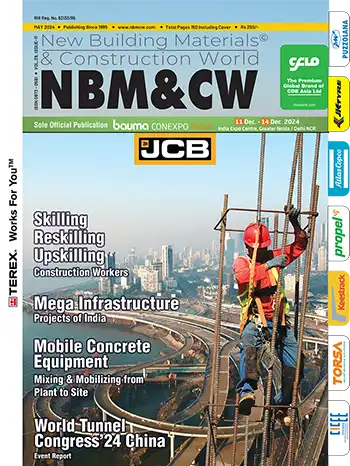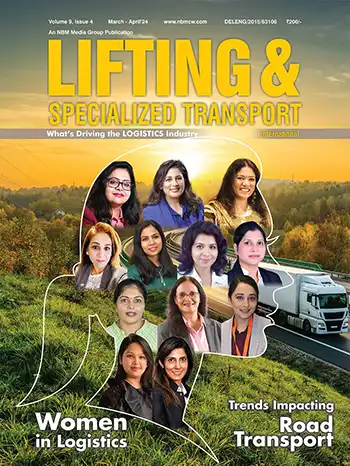GDL: Adapting to Environmental Challenges And Customer Demand

What new trends, developments and eco-friendly practices are being witnessed in the Cargo Container Industry?
In the evolving landscape of the Container Logistics Market, sustainability and the promotion of rail as a low-cost and environmentally friendly mode of transportation have emerged as pivotal trends and developments. Increasingly, rail transport is being integrated into container logistics networks, particularly for long-haul and intercontinental shipments, owing to its inherent advantages in emission reduction and reduced fuel consumption. This shift is further facilitated by investments in rail infrastructure and the establishment of rail corridors dedicated to container traffic.Intermodal transportation hubs that seamlessly interconnect rail and road are becoming focal points for optimizing routes and reducing transit times, thus lowering emissions and costs. Moreover, digitalization plays a crucial role in this transformation, as it's easier to digitally track containers, enhancing supply chain visibility and security.
There's also a growing emphasis on eco-friendly initiatives within the rail sector, encompassing cleaner fuels, electrification, and energy-efficient technologies, all of which align with sustainability goals and enhance rail's appeal as a green transport option. The container logistics industry is also putting a spotlight on sustainability reporting and transparency, adopting eco-friendly practices, and monitoring environmental impacts as sustainability reports gain prominence.
This focus on green practices extends to ports and rail terminals, where infrastructure upgrades, electrification, renewable energy use, and emission-reduction technologies are becoming commonplace. Cargo optimization driven by advanced analytics considers environmental factors such as emissions and fuel efficiency, alongside cost considerations, when determining optimal transportation routes and modes. Government incentives and regulations encourage adoption of environmentally friendly transportation methods, further propelling sustainability efforts within the industry.
Ultimately, customer demand for sustainability in supply chains is reshaping decision-making, with retailers and manufacturers seeking logistics providers that can offer environmentally friendly transportation options. These trends collectively underline the growing significance of sustainability, digitalization, and rail integration in the Container Logistics Market, influencing both operational practices and growth strategies, as the industry adapts to environmental challenges and changing customer preferences.

How do ICDs and CFS enhance efficiency in the container industry?
Inland container terminals (both ICD and CFS) are integral to the Container Logistics Industry, as they are playing a pivotal role in enhancing its efficiency, connectivity, and resilience. These terminals extend the reach of seaports, bringing container handling and distribution closer to key markets and production centres, reducing congestion at seaports, and allowing quicker access to goods inland. By acting as distribution hubs, they optimize cargo movement, leading to cost savings and faster delivery times.Furthermore, inland terminals facilitate intermodal transportation, seamlessly transitioning containers between different modes of transport, enhancing supply chain flexibility and resilience during disruptions. They also provide customs and clearance facilities, streamlining import and export procedures, and contribute to environmental sustainability by reducing long-haul trucking between seaports and inland destinations. Additionally, these terminals stimulate regional economic development, offering scalability, improving market accessibility, and ultimately supporting efficient movement of goods in today's global supply chains.

What new Government policies are influencing the container industry?
Government policies wield substantial influence over the container industry. Trade agreements, customs procedures, and infrastructure investments can significantly impact cargo flow and logistics. The logistics sector in India is critical for the country's trade, commerce, and economic development, accounting for 14.4% of the nation's GDP. The Indian government has introduced several policies and initiatives including the National Logistics Policy (NLP) and the Comprehensive Logistics Action Plan (CLAP).The NLP calls for simplifying existing regulations, making new registrations and licenses simpler to acquire, and encouraging electronic documentation to streamline regulations. The policy also focuses on improving infrastructure and connectivity, optimizing resource utilization, and encouraging private-sector investment.
The logistics industry in India has undergone a transformation in recent years with the setting up of Dedicated Freight Corridors (DFCs), favourable tax policies for the logistics sector, and infrastructure development initiatives such as the increasing port capacity and warehousing facilities. These policies are benefiting the industry by ensuring efficiency in freight movement, and reducing transportation costs.

How is standardization of shipping containers making logistics more efficient?
The standardization of shipping containers by adhering to ISO standards has streamlined cargo handling and transportation. Uniformity in size and shape of the containers is leading to greater efficiency and cost savings. Multimodal transport capabilities allow seamless transitions between various modes of transportation, minimizing manual handling and improving transit times.Enhanced security features of containers reduce the risks of theft and damage, while protection from environmental elements has cut down losses and damage to cargo. Economies of scale with larger container ships have made international trade more cost-effective.
Containerization has played a pivotal role in globalization by enabling efficient supply chain integration and expanding market access. Moreover, advancements in technology and automation have further optimized the containerization process, making it a cornerstone of modern global trade practices.
LIFTING & SPECIALIZED TRANSPORT, SEPTEMBER u2013 OCTOBER 2023


















